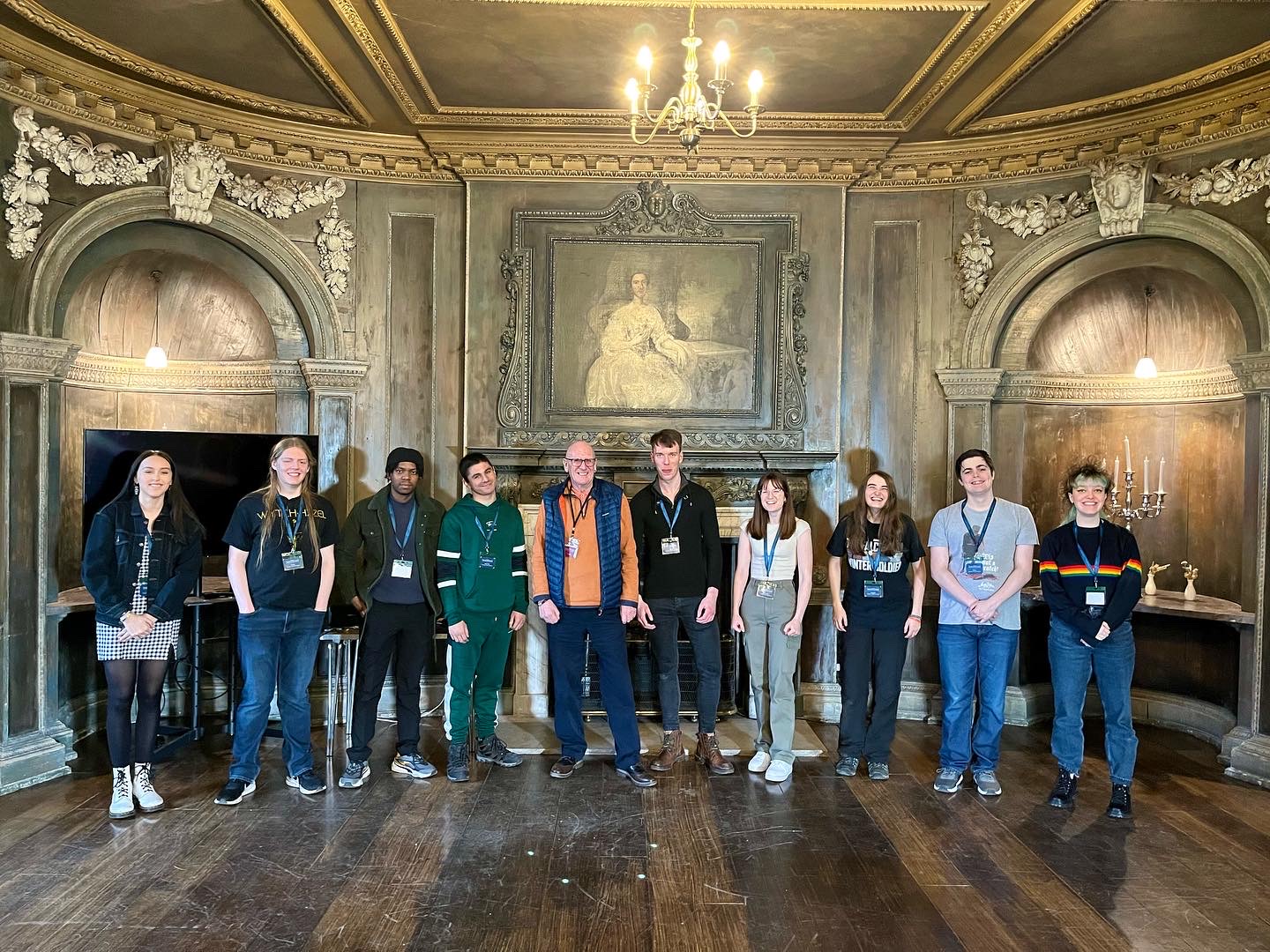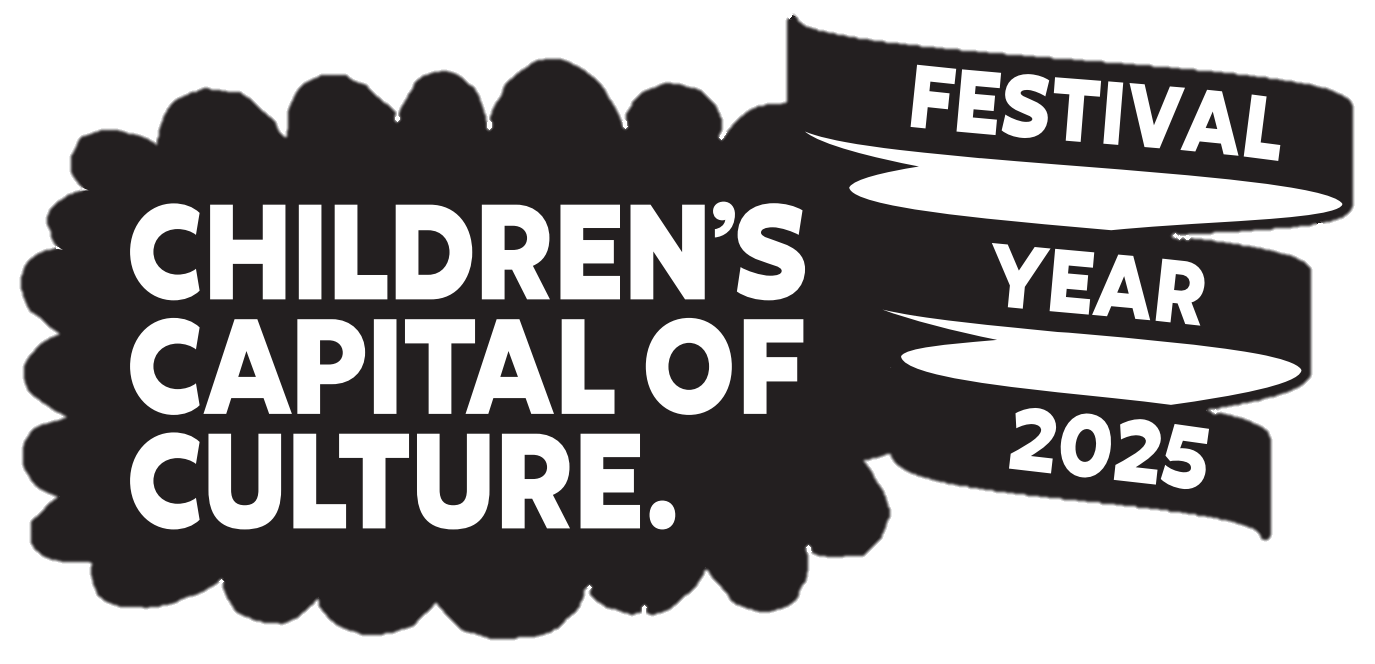Accessible and Inclusive: Informal Approaches to Recruiting Young People
Dr Becky Parry, an independent creative education and arts evaluation specialist, has written a guest blog.

In the first year of the Children’s Capital of Culture programme, the target was to recruit 35 young people to become Young Producers who would work with local organisations co-create arts and cultural events for children and families. By the end of the recruitment process over a hundred applications were received for these posts, and 57 young people took a role as a Young Producer at nine different cultural and creative organisations in the borough.
Given the post-pandemic, national challenge with recruitment and workplace shortages this was a significant achievement*. Of course, numbers are only part of the picture and it was important to the Children’s Capital of Culture partners that young people who often face barriers and challenges would be able to access these opportunities to work in the arts. 14 of the young people recruited were care experienced and 38 identified as women. The successes were therefore not just in terms numbers recruited, but also in terms of reach. In this blog I will focus particularly on what was learned from this about the recruitment process. I am currently working with the Children’s Capital of Culture team to tweak how we recruit further, but we think there are insights here which might help others focus on how they do recruitment in ways that are accessible and inclusive.
Plot spoiler here – informality is key to engagement, and partnerships promote inclusion.
Children’s Capital of Culture took the decision to break with standard application processes after consulting with local KickStart programme colleagues. A non-traditional process was decided on and eye-catching, contemporary promotional materials were created, as well as an accessible online form to register interest. Candidates were not required to prepare CVs or letters of application or complete a substantial online application form. Social media, but also teachers, parents and carers, played an important role in spreading the word and building interest.
Those shortlisted for the roles were invited to a recruitment event, where the young people found out about Children’s Capital of Culture and got to know each other through creative activities, including doing a short presentation that they’d been asked to prepare in advance. In small groups they then took part in activities that ‘simulated’ some of the tasks they would do in role (such as curating an exhibition and planning a festival).
A separate process was undertaken with care experienced young people who, it was felt, might need an opportunity to ask different and more detailed questions. During the early stages of induction and set up, the consortium of partners delivering the traineeships recognised that it needed help to understand and support care experienced young people. A Rotherham organisation, Affinity CIC, was recommended and appointed to support the inclusion of care experienced young people and grow capacity and experience within the host organisations.
One young person described the process as friendly and helpful, commenting:
It’s like no other job process I’d ever been to.
Another young person explained that he had been convinced that his dyslexia and autism would be a barrier to applying, but the recruitment event reassured him that he would receive support and became an important moment of connection with lots of other creatives:
I'm a young person with a background in the arts, so wanted to get involved in more local opportunities to promote creativity and meet other like-minded people, especially after the lockdowns!
Some of the young people encountered reluctance to get involved from their peers, and others reflected on their own feelings of being unsure about whether the experience would live up to what was being advertised. Because of this, the face-to-face event was important as it established confidence and trust:
I found [out about it] through the college, I tried to get my friends to come, and they're just like, ‘No, it's a waste of time.’
The accessible, inclusive and non-traditional recruitment process was valued by the young people, although the process did present challenges, including retrospective administration required to gather the information needed to offer employment contracts, such as references.
The opportunity to test out new ways of recruiting was greatly valued by staff from the host organisations:
We were able to explore, test and discover new methodologies such as the recruitment strategy, to engage young people who are disenchanted with traditional recruitment processes and are disenfranchised from opportunities. (Grimm & Co)
Keys to success
The two main factors in the success of the recruitment process were:
Informality: the avoidance of a competitive, formal and traditional application and interview process was critical. Being informal in terms of tone, design, application activity and feedback caught the attention of young people and helped to remove the confidence barrier where someone might feel that an opportunity was not ‘for’ them. The recruitment processes were still very robust, but their friendliness and accessibility was key.
Partnership: working with Affinity CIC who had expertise and direct experience of working with care experienced young people was critical to their recruitment and support.
Next Steps: In order to build on our successes we now want to focus on recruiting more young people from global majorities, and we think partnership working will be key here too. If you are working with young people in Rotherham who might be interested in being part of our traineeships programmes, please do get in touch with the Children’s Capital of Culture team on ccoc@rotherham.gov.uk.
References*
Join us for Children's Capital of Culture 2025!
Together, we will make Rotherham a place that young people are proud to call home.
Supported by:




